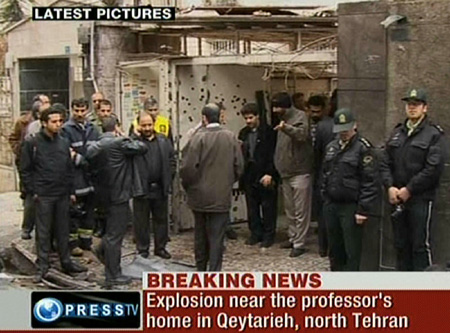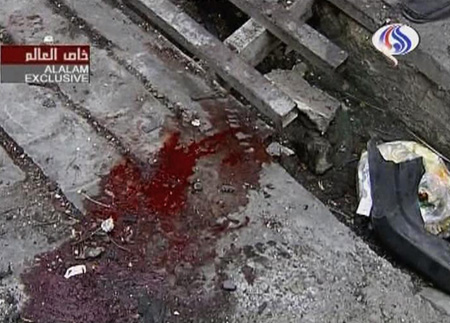Iran accuses U.S., Israel of assassinating nuclear scientist
Iran's Foreign Ministry on Tuesday accused the United States and Israel of assassinating its nuclear scientist in a rare bomb attack in Tehran.
 |
|
An undated image released by Iran's Fars News Agency of Tehran University professor Massoud Ali-Mohammadi who was killed by a bomb in front of his home in north Tehran January 12, 2010. [Xinhua/Reuters Photo] |
The Foreign Ministry spokesman Ramin Mehman-Parast said that there are traces of U.S. and Israeli involvement in the Tehran bomb attack earlier in the day, the state IRIB TV reported.
"In the preliminary investigations there can be seen the traces of the triangular villainy of the U.S., Zionist regime and their agents in Iran's terror attack," Mehman-Parast was quoted as saying.
However, the United States rejected the charges of its involvement in the deadly bomb attack.
According to local English-language Press TV, Dr. Massoud Ali- Mohammadi, a professor at the Tehran University, was killed Tuesday morning by a remote control bomb attached to a motorbike near his home in Qeytariyeh neighborhood, in northern Tehran.
 |
|
An image grab taken from Iran's Press TV station shows the Iranian security forces are inspecting the scene of explosion in Tehran, Jan. 12, 2009. [Xinhua/AFP Photo] |
Both Press TV and Iran's Students News Agency (ISNA) said that Ali-Mohammadi, 50, was a nuclear scientist. The reports, however, did not confirm his link to the country's disputed nuclear program.
The spokesman for Iran's Atomic Energy Organization rejected the "rumors" that Ali-Mohammadi had been employed by the organization, according to local Fars News agency.
"Some rumors concerning his employment by the atomic organization are strongly rejected," Ali Shirzadian was quoted as saying.
IRIB said on its website that Ali-Mohammadi was "a committed and revolutionary Tehran University professor" who was killed in a "terrorist act by counter-revolutionary and arrogant powers' elements."
"Such terror acts and the apparent elimination of nuclear scientists cannot prevent scientific and technological processes," Mehman-Parast was quoted as saying.
 |
|
A video grab of a pool of blood at the site of a bomb blast in Tehran, January 12, 2009. [Xinhua/Reuters Photo] |
The scientific and technological developments in Iran "will speed up and Iran's young and gifted generation will not allow the Iranians' scientific progress to slacken," he added.
According to the report, an investigation is underway to trace the Zionist agents involved in this terror attack.
Iran's official IRNA news agency quoted an unnamed policeman as saying that the number of victims during the bomb blast was still unclear.
Press TV said that a terrorist group, whose radio station broadcasts from the United States, claimed responsibility for the fatal attack on the Iranian nuclear scientist in Tehran.
The Iran Royal Association, a group that seeks to re-establish the Pahlavi reign (pro-U.S. Shah regime prior to the Islamic Revolution victory in 1979), announced in a statement that its "Tondar Commandos" were behind the assassination of Ali-Mohammadi, the report said.
 0
0 






